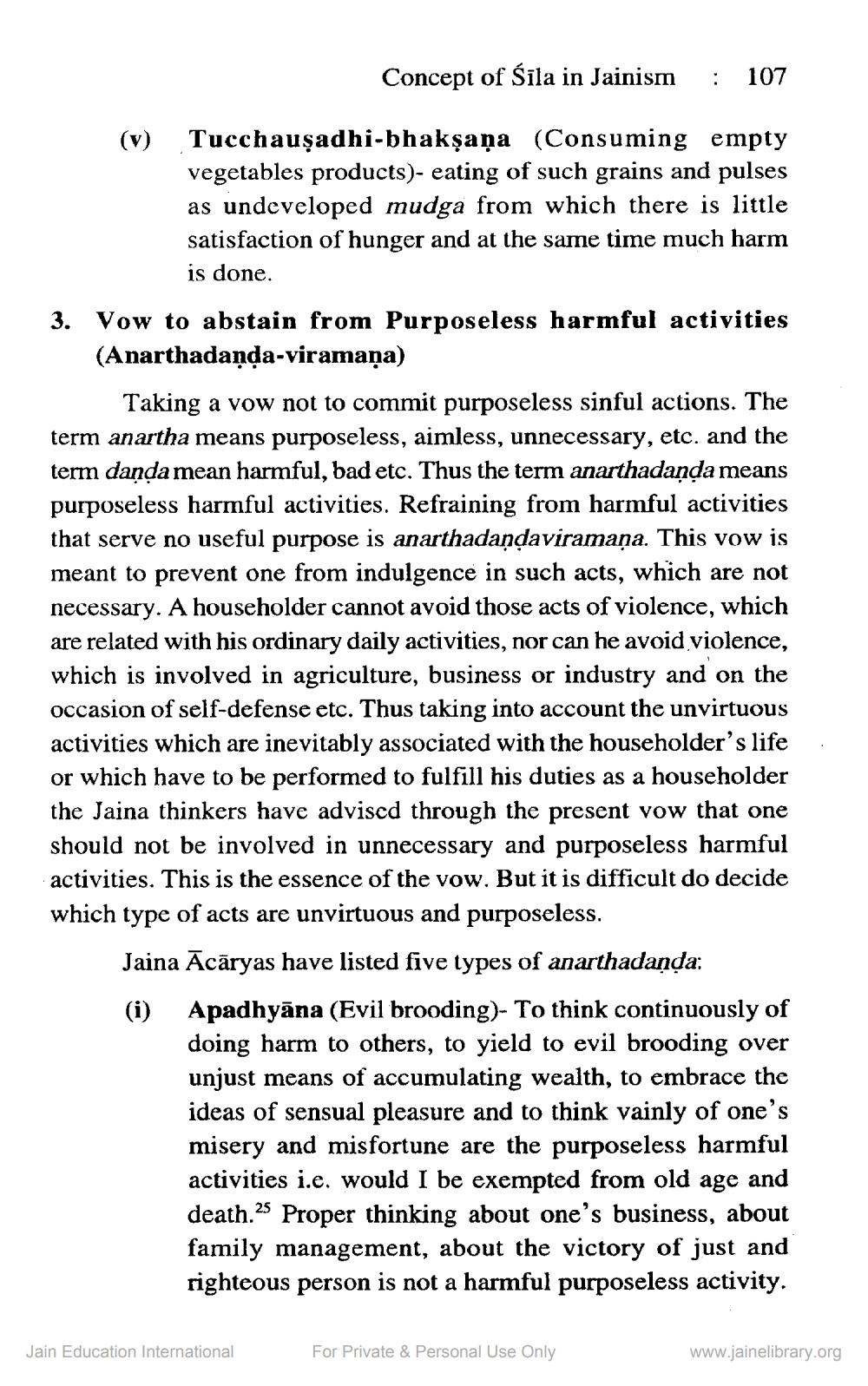________________
(v)
Concept of Śila in Jainism 1: 107
Tucchauṣadhi-bhakṣaṇa (Consuming empty vegetables products)- eating of such grains and pulses as undeveloped mudga from which there is little satisfaction of hunger and at the same time much harm is done.
3. Vow to abstain from Purposeless harmful activities (Anarthadaṇḍa-viramaņa)
Taking a vow not to commit purposeless sinful actions. The term anartha means purposeless, aimless, unnecessary, etc. and the term danda mean harmful, bad etc. Thus the term anarthadaṇḍa means purposeless harmful activities. Refraining from harmful activities that serve no useful purpose is anarthadaṇḍaviramaṇa. This vow is meant to prevent one from indulgence in such acts, which are not necessary. A householder cannot avoid those acts of violence, which are related with his ordinary daily activities, nor can he avoid violence, which is involved in agriculture, business or industry and on the occasion of self-defense etc. Thus taking into account the unvirtuous activities which are inevitably associated with the householder's life or which have to be performed to fulfill his duties as a householder the Jaina thinkers have advised through the present vow that one should not be involved in unnecessary and purposeless harmful activities. This is the essence of the vow. But it is difficult do decide which type of acts are unvirtuous and purposeless.
Jaina Acāryas have listed five types of anarthadaṇḍa:
(i)
Apadhyāna (Evil brooding)- To think continuously of doing harm to others, to yield to evil brooding over unjust means of accumulating wealth, to embrace the ideas of sensual pleasure and to think vainly of one's misery and misfortune are the purposeless harmful activities i.c. would I be exempted from old age and death.25 Proper thinking about one's business, about family management, about the victory of just and righteous person is not a harmful purposeless activity.
Jain Education International
For Private & Personal Use Only
www.jainelibrary.org




